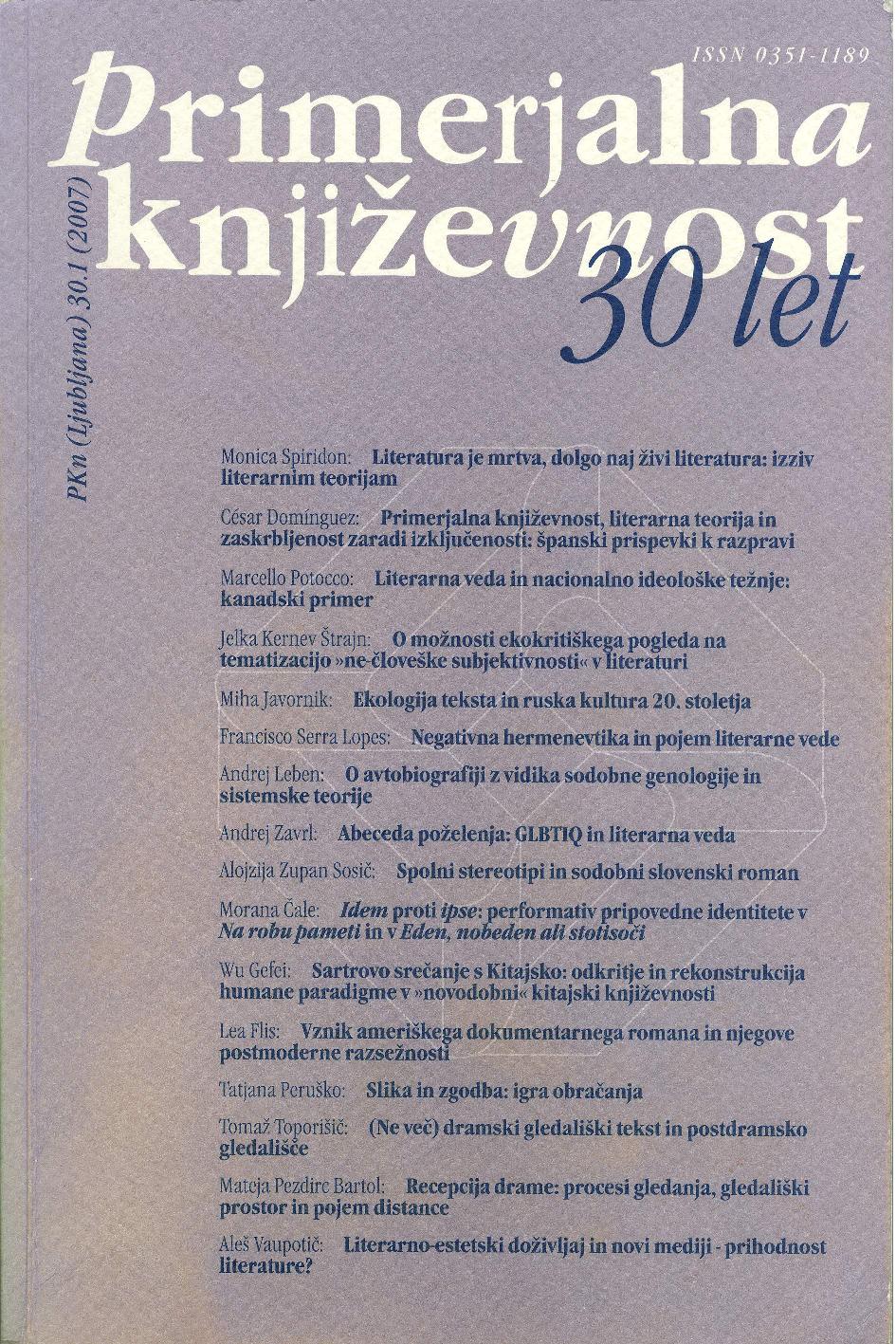Ecology of Text and 20th-Century Russian Culture
Keywords:
Russian culture, Russian literature, 20th cent., avant-gardeAbstract
This article seeks to consolidate the methodological foundations for discussing 20th-century Russian culture. The method is verified through the following conceptual and thematic sections: (1) The discussion starts with the ecology of text, which was a rather fashionable current in literary and cultural studies in the 1990s. It is interesting why one of the leading Russian culturologists, Mikhail Epstein, dedicates so much attention to this. It appears that this is not a coincidence because the idea about “purifying culture” is a repeatable constant of 20th-century Russian culture. (2) Mikhail Bakhtin’s theory of carnivalization is used to support the discussion. This is complemented by the findings of the Moscow and Tartu schools of semiotics; that is, culture is a dynamic phenomenon, the development of which faces constant change in value orientations. The analysis demonstrates that there were two important processes in the 20th century that actualized “mythological thought” each in its own way. The first is referred to by the syntagm “culture purification,” and the other as “semiotization,” which led to the creation of the social utopia. (3) The discussion pays special attention to the historical avant-garde; that is, primitivistic and Cubo-Futurist appeals for cultural purification, which were summarized in Kazimir Malevich’s 1923 manifesto The Suprematist Mirror: the goal of cultural development is point zero or the circle as the symbol of all of the potential possibilities. (4) An appeal for culture purification must be understood as an attempt to establish the original state of consciousness and the primal sensation in Russian culture. This results in the revival of mythological consciousness and mythologization. (5) The avant-garde experiment is transferred from the “noosphere” to the “biosphere,” when it starts to be realized by the socio-realistic doctrine – that is, Soviet ideology de facto purifies tradition and constructs an image of an ideal world. A Soviet myth is being created, which strives to become the only possible reality. The idea of the zero or circle is materialized and becomes the only valid “everything” in the cultural purification process. (6) The discussion continues with the observation that in the second half of the 20th century the idea of cultural purification started to be revived. It draws attention to the neo-avant-garde attempts in the 1950s that grew into planned degradation of Soviet symbols. Soc-art is created, leading to a new, systematic purification of Soviet culture. (7) Within the purified post-Soviet culture, lines of force can be observed that testify to renewed mythologization. The basic currents are outlined schematically and the main authors are presented.References
Barański, Zbigniew / Litwinow, Jerzy (ur.). Rosyskie kierunki literackie. Przełom 19 i 20 wieku. Varšava: Państwowe wydawnictwo naukowe, 1982.
Эпштейн, Михаил. Знак_пробела (о будущем гуманитарных наук). Moskva: Новое литературное обозрение, 2004.
Freud, Sigmund. Das Unheimliche. Ljubljana: Društvo za teoretsko psihoanalizo, 1994.
Glotfelty, Cheryll / Fromm, Harold (ur.). The Ecocriticism Reader. Landmarks in Literary Ecology. Atene: University of Georgia Press, 1996.
Григорьев, Олег. Двустишия, четверостишия и многостишия. Sankt Peterburg, 1993.
Grojs, Boris. Celostna umetnina Stalin: razcepljena kultura v Sovjetski zvezi. Ljubljana: *cf, 1999.
Хлебников, Велимир. Собрание сочинений. München: Fink, 1968–71.
Холин, Игорь. Избранное. Moskva: НЛО, 1999.
Jaccard, Jean-Ph. »Возвышенное в творчестве Хармса.« Wiener Slawistischer Almanach 34 (1994).
Javornik, Miha. »Mihail Bahtin in OBERIU/ОБЭРИУ (Psihotipologija nekega obdobja).« Slavistična revija 2 (1999): 195–210.
– – –. »O predvidljivosti in nepredvidljivosti v razvoju kulture.« Slavistična revija 2 (2002): 171–182.
– – –. »'Pornografska literatura' V. Sorokina v primežu ruskega kulturnega spomina (O tem, kako ni mogoče ubežati lastni zgodovini).« Primerjalna književnost 2 (2005): 77–92.
– – –. »Soc-art – znanilec praznine.« Jezik in slovstvo 6 (1994/95): 205–212.
Kroeber, Karl. Ecological Literary Criticism. Romantic Imagining and the Biology of Mind. New York: Columbia University Press, 1994.
Курицын, Вячеслав. Русский литературный постмодернизм. Moskva: ОГИ, 2001.
Кузминский, Константин / Ковалев, Григорий. Антология новейшей русской поэзии ‘У голубой лагуне’. Newtonwille: Oriental Research Partners, 1980.
Лейдерман, Наум / Липовецкий, Марк. Современная русская литература 3. Moskva: УРСС, 2001.
Meletinski, Jeleazar. Poetika mita. Ljubljana: Literarno-umetniško društvo Literatura, 2006.
Потебня, Александр. Эстетика и поэтика. Moskva: Искусство, 1976.
Сарабьянов, Д. / Шатских, А. (ur.). Казимир Малевич. Живопись. Теория. Moskva: Искусство, 1993.


